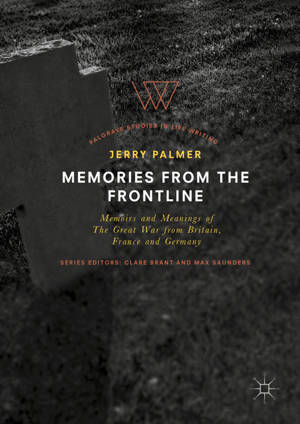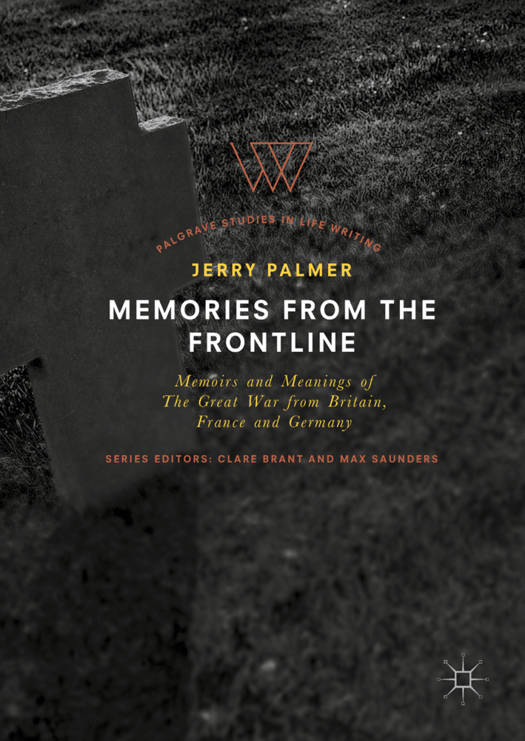
Door een staking bij bpost kan je online bestelling op dit moment iets langer onderweg zijn dan voorzien. Dringend iets nodig? Onze winkels ontvangen jou met open armen!
- Afhalen na 1 uur in een winkel met voorraad
- Gratis thuislevering in België vanaf € 30
- Ruim aanbod met 7 miljoen producten
Door een staking bij bpost kan je online bestelling op dit moment iets langer onderweg zijn dan voorzien. Dringend iets nodig? Onze winkels ontvangen jou met open armen!
- Afhalen na 1 uur in een winkel met voorraad
- Gratis thuislevering in België vanaf € 30
- Ruim aanbod met 7 miljoen producten
Zoeken
Memories from the Frontline
Memoirs and Meanings of the Great War from Britain, France and Germany
Jerry Palmer
€ 94,95
+ 189 punten
Uitvoering
Omschrijving
This book analyses soldiers' memoirs from the Great War of 1914-18 from Britain, France and Germany. It considers both the authors' composition of the memoirs and the public response to them. It provides contextual analysis through a survey of the different types of contemporary writing about the Great War, through an analysis of changes in the language used to describe combat, and through an analysis of those people whose accounts of the war were either excluded or marginalised. It also considers the international response to the most successful of the texts. The purpose of the analysis is to show how soldiers' memoirs contributed to the collective memory of the war and how they influenced public opinion about the war. These texts are both autobiographical and historical and their relationship to the fields of autobiography and historical writing is also considered, as well as to the distinction between fact and fiction.
Specificaties
Betrokkenen
- Auteur(s):
- Uitgeverij:
Inhoud
- Aantal bladzijden:
- 339
- Taal:
- Engels
- Reeks:
Eigenschappen
- Productcode (EAN):
- 9783319780504
- Verschijningsdatum:
- 7/06/2018
- Uitvoering:
- Hardcover
- Formaat:
- Genaaid
- Afmetingen:
- 148 mm x 210 mm
- Gewicht:
- 571 g

Alleen bij Standaard Boekhandel
+ 189 punten op je klantenkaart van Standaard Boekhandel
Beoordelingen
We publiceren alleen reviews die voldoen aan de voorwaarden voor reviews. Bekijk onze voorwaarden voor reviews.











